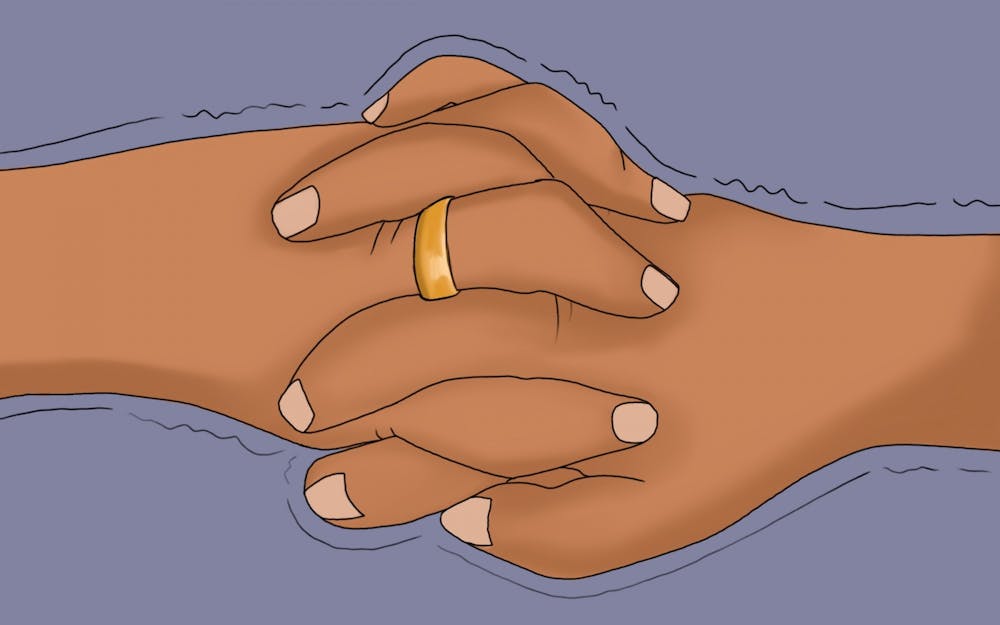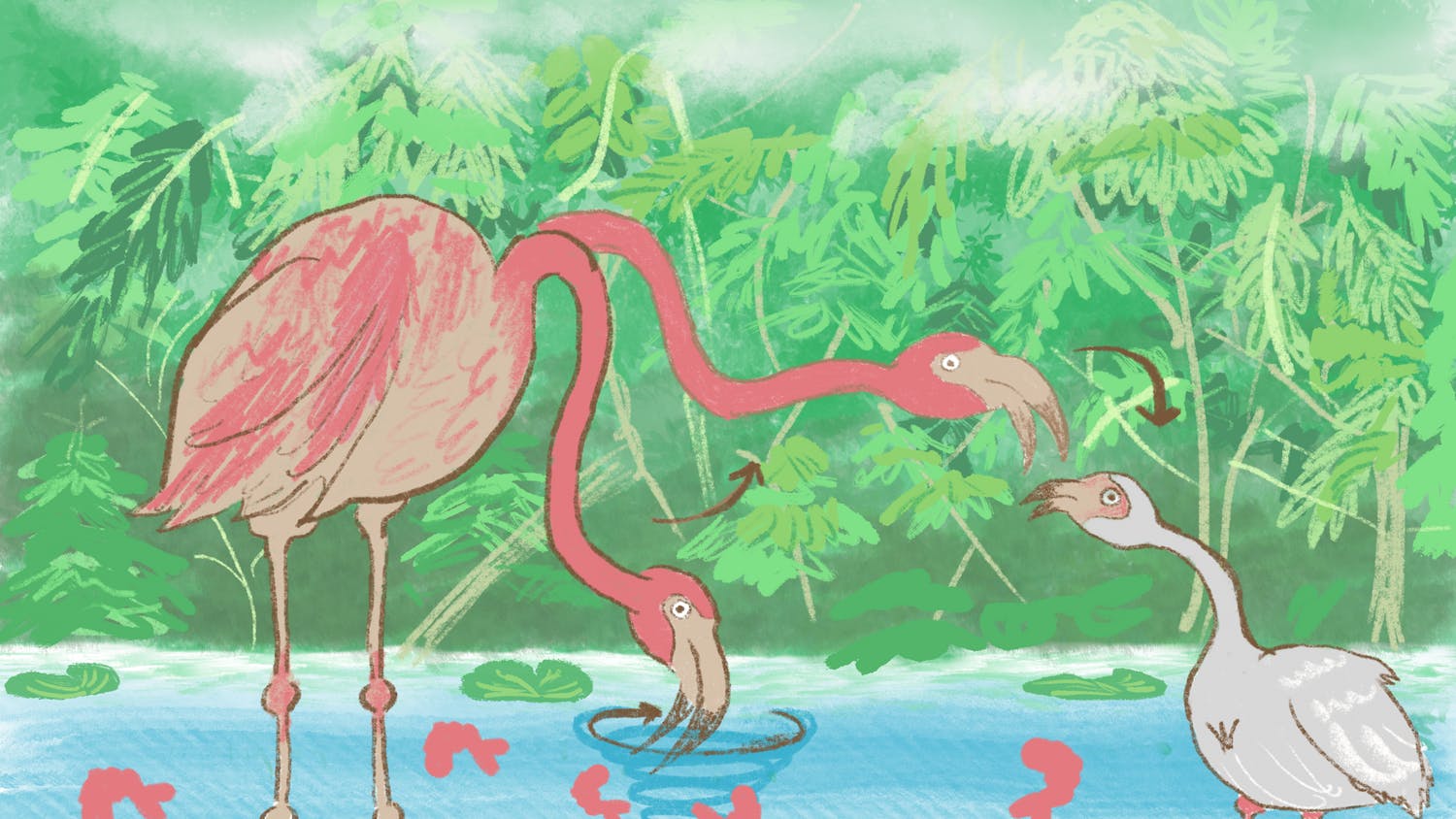Over winter break in a quarantine-induced fervor I decided to treat myself to a nice piece of jewelry. It wasn’t going to be anything fancy, but I wanted it to last and signify something I’d earned working part time.
If you’re from Texas, you know the James Avery store is the holy grail for jewelry shopping. For everybody up north, it’s a jewelry store native to my home state that sells silver and gold rings, necklaces and charms with a recognizable iron design. We have two in my hometown of Frisco — one close to my house, one far away.
I prepared for my shopping trip like anybody else with anxiety. I looked at the website and culled through each piece of jewelry until I narrowed my search to two or three that piqued my interest. I picked a color. I measured my ring size.
Upon my arrival, I quickly became overwhelmed. I’d mistakenly gone on a Saturday — the store was packed. Somehow, I located the ring I thought I wanted, and an attendee walked me to the register for fitting. Though I assume they do this to minimize shrinkage, it imposes an enormous amount of pressure upon the customer to buy.
To my horror, I just didn’t like it. It was wrong, faded and nowhere near how I envisioned it’d look. I politely declined, rapidly collected my things and left the store.
I then drove 20 minutes to the other location to purchase the ring I wanted instead.
You might be thinking, “Why would you do that? If you were already at the store, why would you drive all the way to another location just because you wanted something different?”
And you would be right. But that’s the tricky thing about shame and anxiety — you spend all your time trying not to inconvenience others, ultimately inconveniencing yourself in the process.
At the time, I didn’t realize my discomfort was rooted in shame. I was ashamed I picked the wrong ring. I was ashamed I didn’t do more to prepare for my visit. I was ashamed I inconvenienced the attendee. Even revisiting this scenario feels silly, so why did I react this way?
Unsurprisingly, a propensity toward shame is common among people with high sensitivity and low self-esteem. Shame is produced when we violate some kind of social norm — or at least feel like we do. Turning those feelings inward and saying “I did something terrible” forces us to feel guilty for negatively affecting or inconveniencing another person, psychologist Annette Kämmerer said.
Because shame arose from some ancestral evolutionary advantage, making humans more adaptable to social situations and societal norms, it can be beneficial. If these feelings produce well-placed guilt, it forces us to look outwardly and change our behavior in a positive way. However, if our focus is inappropriately turned inward, a sort of shame spiral can arise, causing some to isolate and cut themselves off from family and friends, clinical psychologist Samantha Rodman said.
Consequently, shame exacerbates and is directly linked to symptoms of social anxiety disorder and generalized anxiety disorder, according to a study by Northern Illinois University.
But these feelings are manageable and can be addressed through treatment and introspection. Being open, honest and upfront about unwarranted sources of shame, and actively deciding what you’re not going to be ashamed of and what you’re not responsible for can help you establish boundaries not only with other people, but within your own mind, clinical psychologist and researcher Alice Boyes said.
Forgiving myself for past mistakes has been particularly effective. Taking myself outside the situation and looking at it logically has helped me realize that buying a piece of jewelry should be fun, not anxiety inducing. The people at the James Avery store are there to help me, and so long as I’m patient and polite, I have nothing to be ashamed of.
During the COVID-19 pandemic, it can be easy to get caught up in this shame spiral — especially when reaching out to others. But, as someone with proven difficulty in doing so, I encourage others to pursue these conversations shamelessly. Text that person you’ve been meaning to or reach out to that friend you’re convinced doesn’t want to be contacted. In reality, they probably do. And if not, take those steps to realize it’s not your fault.
Don’t let internalized feelings of guilt or shame keep you from living your life, because if I’ve learned anything, it’s just how much time I’ve wasted in doing so.
Natalie Gabor (she/her) is a junior studying journalism with minors in business marketing and philosophy. She hopes to one day find a career that tops her brief stint as a Vans employee.






